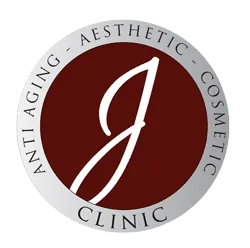The eyes are often considered the windows to the soul, but they’re also one of the first areas to show signs of aging. As time passes, factors such as genetics, sun exposure, and lifestyle habits can lead to drooping eyelids, under-eye bags, and wrinkles around the eyes. Fortunately, advancements in cosmetic surgery have made it possible to rejuvenate the eye area through various eye lift procedures. In this comprehensive guide, we’ll explore the different types of eye lift procedures available, helping you determine which one may be right for you.
Traditional Blepharoplasty
Traditional blepharoplasty, also known as eyelid surgery, is one of the most commonly performed cosmetic procedures for rejuvenating the eye area. This surgical technique involves removing excess skin, muscle, and fat from the upper and/or lower eyelids to create a more youthful and refreshed appearance. It’s ideal for individuals with significant eyelid hooding, puffiness, or sagging skin that obstructs vision or makes them appear tired or older than they feel.
During a traditional blepharoplasty procedure, the surgeon will make precise incisions along the natural creases of the eyelids to minimize scarring. Excess tissue is then carefully removed, and the remaining skin is repositioned and sutured into place. Recovery typically involves some swelling and bruising, but most patients can return to their normal activities within a week or two.
Transconjunctival Blepharoplasty
Transconjunctival blepharoplasty is a variation of eyelid surgery that specifically targets under-eye bags and puffiness. Unlike traditional blepharoplasty, which involves external incisions, transconjunctival blepharoplasty is performed through an incision made inside the lower eyelid. This approach allows the surgeon to access and remove excess fat deposits without leaving visible scars on the skin’s surface.
Ideal candidates for transconjunctival blepharoplasty are typically younger patients with good skin elasticity and minimal excess skin. The procedure is less invasive than traditional blepharoplasty and often results in a quicker recovery with less postoperative bruising and swelling. However, it’s important to consult with a board-certified plastic surgeon to determine if transconjunctival blepharoplasty is suitable for your specific concerns.
Brow Lift
While blepharoplasty focuses on the eyelids themselves, a brow lift addresses sagging or drooping eyebrows that contribute to a tired or aged appearance. As we age, the brow may descend due to gravitational forces and loss of skin elasticity, leading to hooded eyelids and forehead wrinkles. A brow lift, also known as a forehead lift, lifts and repositions the brow to a more youthful position, opening up the eyes and smoothing forehead lines.
There are several techniques for performing a brow lift, including the traditional coronal approach, endoscopic brow lift, and temporal brow lift. The optimal technique depends on factors such as the patient’s anatomy, degree of brow ptosis, and aesthetic goals. During a brow lift procedure, incisions are strategically placed either within the hairline or along the natural creases of the forehead to minimize visible scarring.
Laser Skin Resurfacing
In addition to surgical interventions, non-surgical options such as laser skin resurfacing can also improve the appearance of the eye area. Laser skin resurfacing involves using a laser device to remove the outer layers of damaged skin, stimulate collagen production, and promote skin tightening. It can effectively reduce fine lines, wrinkles, and uneven pigmentation around the eyes, resulting in smoother, more youthful-looking skin.
Laser skin resurfacing is particularly beneficial for individuals with mild to moderate signs of aging who prefer a non-invasive approach or wish to enhance the results of previous surgical procedures. Depending on the specific laser technology used, downtime and recovery may vary, but most patients can expect some redness and peeling for a few days following treatment.
Injectable Treatments
Injectable treatments such as botulinum toxin (e.g., Botox) and dermal fillers can complement surgical or non-surgical eye lift procedures by targeting dynamic wrinkles, hollows, and volume loss around the eyes. Botulinum toxin injections temporarily relax the muscles responsible for causing crow’s feet and frown lines, resulting in a smoother, more refreshed appearance.
Dermal fillers, on the other hand, can add volume to sunken tear troughs, under-eye hollows, and temple areas, reducing the appearance of dark circles and restoring youthful contours. Popular filler options for the eye area include hyaluronic acid-based fillers like Restylane and Juvederm, which provide natural-looking results with minimal downtime.
Conclusion
Choosing the right eye lift procedure requires careful consideration of your individual concerns, anatomy, and aesthetic goals. Whether you opt for surgical or non-surgical interventions, consulting with a qualified plastic surgeon or dermatologist is essential to ensure personalized treatment and optimal outcomes. By understanding the different types of eye lift procedures available, you can make an informed decision to rejuvenate your eye area and enhance your overall appearance with confidence.


